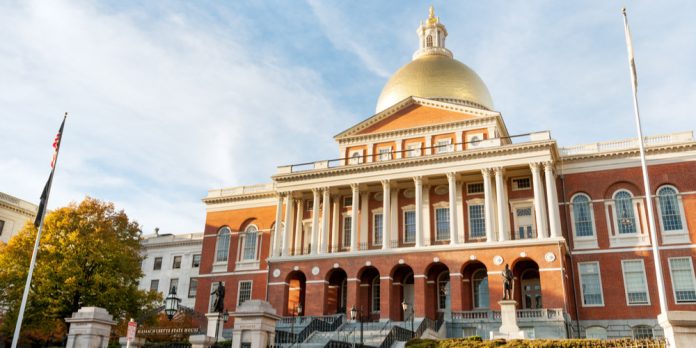Martin Lycka – SVP for American Regulatory Affairs and Responsible Gambling at Entain – provides his take on the sports betting legislation currently making its way through the political system in the state of Massachusetts.
The sports betting pilgrimage has landed and put down its roots in 35 states by now, including remote places such as Oregon and Iowa, and continues navigating legislative and other challenges with the ruthless efficiency of ancient zealots.
It would not surprise me if, with all due respect to Utah, all states but this one will have regulated sports betting, in one way or another, in the next few years. Mind you, even Hawaii and Alaska have at least considered bills to that effect, something that arguably would not have been even conceivable a couple of years ago.
Just like in the old days of the formation of the first colonies, the sports betting pilgrims have been on a journey around New England as well. Their mission is nearly complete, with Connecticut, Maine, New Hampshire, and Rhode Island having regulated and Vermont headed in the same direction. Yet all eyes are on the crown jewel amongst New England states, the biggest prize of them all, the Commonwealth of Massachusetts, also known as the Pilgrim State.
The sports betting pilgrims have been proselytizing away in what one would have thought would be a land promised to online sports betting owing to its sports, technology, and after all even “betting” history since the repeal of PASPA. For some time though, they have been hitting the wall of the legendary puritan spirit that prompts its followers to stay on the sidelines and watch and ponder what the others have done before making a resolute move.
Last summer finally sparked the Massachusetts betting revolution as the Massachusetts House of Representatives overwhelmingly supported a bill intended to allow the Bay Staters to try their hand with sports betting; the final score was 156 to 3, reminiscent of the Patriots’ routs of the Dolphins in days gone by.
The House version of the bill is permeated by liberal, if not libertarian, ethos as besides allowing a set of Massachusetts-based land-based casinos and other gaming operators to make a foray into the territory of retail and online sports betting it also provides for mobile-only sports betting licenses. Its taxation rules are in step with levies collected by the more operator-friendly states down the East Coast; the stance on the likes of betting on college sports was promising in both economic as well as integrity terms. The local pilgrimage was off to the states Senate next.
The classical political theory would have it that, in general, the upper chambers of any parliamentary structure are inhabited by more elderly states people whose role is to provide stability and anchoring. In practical terms, this usually means that upper chambers are minded to be more conservative than their sometimes radical lower counterparts. The Massachusetts Senate would appear to have acted in that tradition when pondering the intricate issue of sports betting regulation. The House bill has been weighted, it has been measured and it has been found a little too free-spirited for the liking of the honorable Senators. As a result, the Senate has produced a sports betting bill of its own.
The Senate bill restricts the number of licenses while firmly tethering them to having a physical presence in the state of Massachusetts. Reviving the spirit of old England in the heart of New England, it also proposes a whistle-to-whistle ban on advertising as well as a command that thou shall not use a credit card for thy betting. Betting taxes are proposed to go through the roof of 35% when it comes online and betting on collegiate sports is banned.
Having been a part of the old England gambling awakening and lately exposed to the seemingly never-ending stream of sports betting adverts in the US, I may have some sympathy with the proposed whistle to whistle ban. Granted, it may be one of the ways of stemming the tide of overly intrusive promoting of sports betting of late.
On the other hand, no other US states are so religious in this respect, nor do they plan to be, meaning the Massachusettsans will remain targets of sports betting-related advertising regardless. The Bay State may be better off waiting until its market matures at least a little bit, just like the old England one has, before putting in place such a restrictive advertising commandment and instead rely on more prominent responsible gambling messaging in the meantime.
Even more importantly though, the two bans the Senate has proposed, may not turn out to be the panaceas the good Senators might have been hoping for. Banning the most popular American payment method as well as the most popular set of betting markets may lead to the departure of customers into the black market, a frenzy that is already being fuelled by the high level of proposed taxation. Arguably, the “witches” to stand a trial here must be black market operators, as opposed to heavily regulated credit card companies, let alone collegiate sports fans.
The House and the Senate will now have formed a conference committee to hash out the differences in the two bills and we shall be hoping that it will get done before the lights all go out in Massachusetts.
Martin Lycka is the SVP for American Regulatory Affairs and Responsible Gambling at Entain. The statements made in relation to this article, do not necessarily reflect the opinions held by Entain Plc. Subscribe to Martin Lycka’s Safe Bet Show on all leading podcast providers. Click here for more information.














